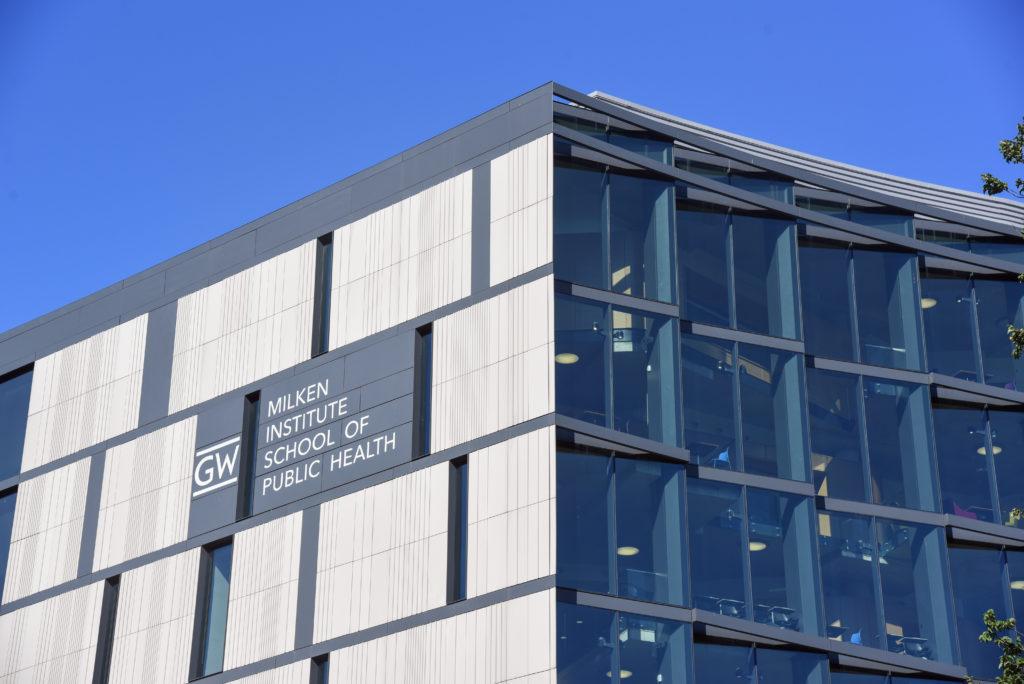Experts said the 20 percent rise in applicants who are interested in public health compared to last year is likely the result of heightened interest in the subject during the COVID-19 pandemic.
Milken Institute School of Public Health spokesperson Stacey DiLorenzo said the pandemic has shown the world the influence of the field of public health. She said if the increased interest this year results in a larger incoming class of Milken students, officials will “adjust resources as necessary” to meet those students’ needs.
She said officials have noticed a similar increase in applications to Milken’s graduate programs for the upcoming year.
“This past fall, both on-campus and online programs had historically large numbers of students start at GW,” DiLorenzo said in an email. “Looking at our application pool for next year, we are hopeful this trend will continue.”
DiLorenzo said having a large group of “talented” public health students will support Milken’s research capabilities and the school’s ability to serve the community.
“It is not likely the younger generation will forget the pandemic any time soon,” she said. “We hope a silver lining from our experience in the past year is that we have an influx of smart, dedicated individuals ready to become the next generation of public health leaders.”
Prospective undergraduates interested in studying public health can apply to Milken while applying to GW. Students can also transfer into the exercise science or nutrition majors with a minimum grade point average of 2.5 or transfer to the public health major with a minimum GPA of 2.75 after being admitted to GW.
Medical schools across the country have also noted an 18 percent increase in applications, according to the Association of American Medical Colleges.
David Rosner, a professor of sociomedical sciences at Columbia University, said the change this year could be the result of growing interest from younger generations in the way social issues like racism and climate change are tied to public health. Experts in public health and D.C. officials have said the pandemic is disproportionately impacting marginalized communities in the District.
“In general, there’s tremendous interest in the issues of whether or not the world will continue to exist in the next 20 years,” he said. “This is something that young people obviously have an interest in.”
Rosner said throughout the past 50 years, the public health field has evolved from a focus on technical issues like measurements of genetic change to its impact on “broad social issues” like climate change and gun control.
“This influx of young people, where they’re very, very socially conscious of the ways in which race and racism affect us all and affects society and create terrible scars and terrible damage to human beings, that broadening of our perspective will force a field to expand its vision,” he said.
Gerald Keusch, a professor of medicine and international health at Boston University, said the change this year could be tied to increased attention on social issues like health equity during the pandemic.
“What we’re seeing now with COVID is just the progression of what we’ve seen over the last five or 10 years, this growing concern for the fact that we inhabit the same planet,” Keusch said.
He said he hopes the trend will continue to develop the field of public health and allow underlying issues in health care to go unseen. He said the growth in interest could allow individuals from diverse backgrounds to enter the field.
“What keeps me hopeful is having contact with so many deeply interested and concerned young people who are interested in what I think is a noble and an increasingly important field of endeavor – these outbreaks, for example, will not go away,” Keusch said. “They’ll only get more common, more widespread, more deadly, more frequent.”
He said the pandemic has allowed many individuals to see the field as a viable career path after the nationwide attention on many public health experts and the topic’s effects during a global health crisis. He said the public health field has to maintain a visible presence and include diverse voices to continue drawing the interest of young people.
“I do think the interest is going to be sustained,” Keusch said. “And then systematically, we have to create the conditions for that interest to continue on beyond the next couple of years.”
Lauren Christiansen-Lindquist, a research assistant professor of public health at Emory University, said the pandemic has allowed individuals to see the personal impact of decisions public health professionals make.
“People are seeing the effects of not attending to public health in their own personal lives,” Christiansen-Lindquist said. “They’re not just seeing this on the news, but everyone’s lives have been turned upside down by the pandemic.”
She added that public health schools should be more “nimble” and “creative” as they begin to look into the possibility of expanding their class size.
“What each school will do is really dependent on the culture and resources that they have, so I don’t know that there’s a one-size-fits-all approach,” Christiansen-Lindquist said. “But programs will need to be mindful to ensure that they have the capability to support the students that they admit.”







